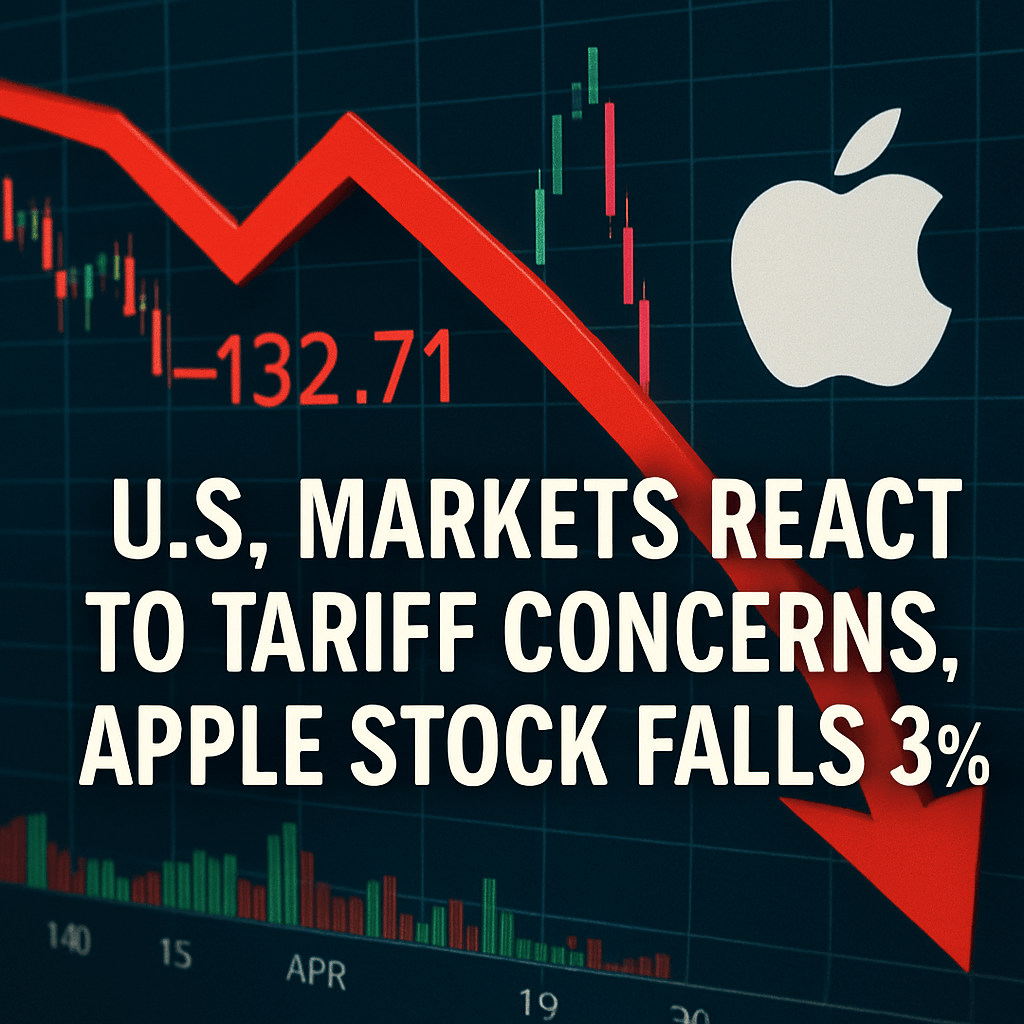U.S. Markets React to Tariff Concerns, Apple Stock Falls 3%

President Donald Trump has once again placed tariffs in the spotlight, leading to a slight dip in U.S. stock markets on Friday. His recent comments included a potential 50% tax on imports from the European Union (EU) and a 25% tariff on products from tech giant Apple. The impact on the market was notable, with the S&P 500 recording a daily decrease of 0.7% and a weekly decline of 1.7%. The Nasdaq experienced a 1% drop, and the Dow Jones fell by 0.6%.
Trump’s Tariff Threats
In a series of posts on Truth Social, the social platform founded by Trump, he claimed that the EU was initially created to exploit the United States in terms of trade.
“The European Union, which was formed for the primary purpose of taking advantage of the United States on TRADE, has been very difficult to deal with,”
he stated, indicating his intent to implement a 50% import tax on EU goods.
Regarding Apple, the President specifically mentioned imposing “at least” a 25% tariff on the company unless it relocated its iPhone manufacturing plants back to the U.S. While tariffs against specific companies are uncommon in the modern trade landscape, the announcement had an immediate effect, causing Apple’s shares to plummet by 3% in reaction to these threats.
Market Context and Recent Developments
This new stance represents a significant shift from the Trump administration’s previous approach to tariffs. In early April, Trump had announced a base tariff of 10% on imports from various trading partners, with particular emphasis on China, exacerbating market volatility. After this announcement, both stock and bond markets displayed signs of distress, prompting him to retract some of these measures soon after, while maintaining tariffs specifically on Chinese goods.
However, the mood shifted earlier this month when the U.S. and China agreed to a 90-day pause in their ongoing trade war. During this grace period, the U.S. committed to reducing tariffs on Chinese goods to 30%, while China agreed to lower tariffs on American exports to 10%. As a result, markets had responded positively, highlighting the fragile balance between trade relations and market performance.
Economic Predictions
According to economists Samuel Tombs and Oliver Allen from Pantheon Macroeconomics, there are cautious expectations for the U.S. economy moving forward. In a research note released prior to Trump’s recent remarks, the economists maintained that
“The economy still looks set to slow decisively but avoid recession, provided the administration refrains from imposing additional tariffs this summer.”
With ongoing uncertainties regarding tariffs, market participants remain vigilant.
Impact of Moody’s Downgrade
Adding to the market’s concerns is the recent downgrade by Moody’s Investors Service, which lowered the credit rating of U.S. government debt from AAA to Aa1. This decision reflects apprehensions regarding the rising levels of government debt and interest payment ratios, which have escalated over the past decade. Moody’s cited that these financial metrics are significantly higher than those of similarly rated sovereign nations, contributing to a loss of confidence in U.S. fiscal stability.
Conclusion
The intersection of Trump’s tariff threats, the handling of trade relations, and the implications of credit ratings highlight how geopolitics can directly impact market performance. Investors and analysts will be closely monitoring these developments, as any increase in tariffs could lead to more significant ramifications for the global economy.